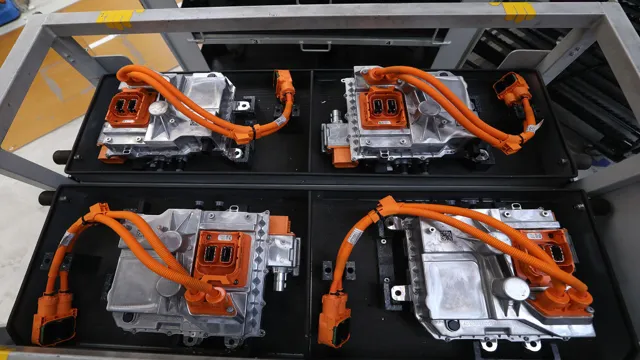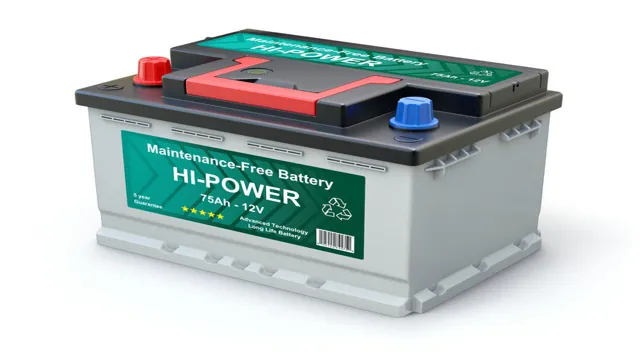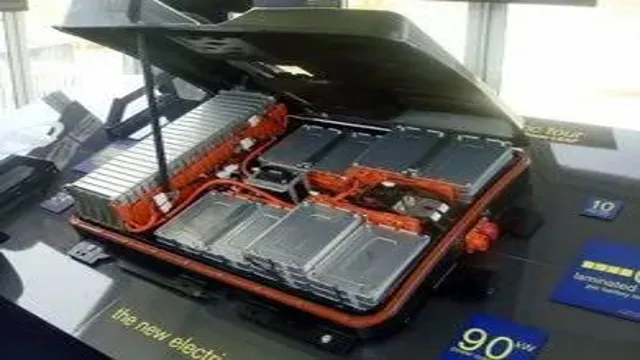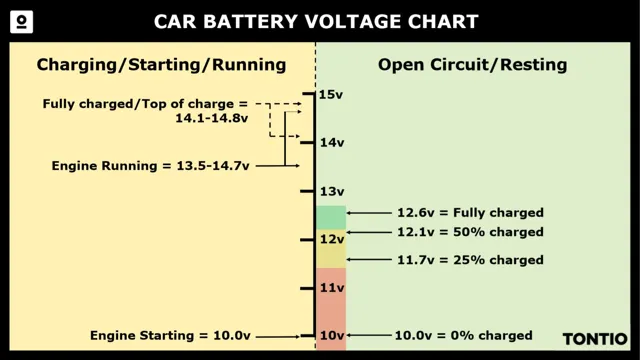The Ultimate Guide to Cost-Effective Replacement Batteries for Electric Cars
Electric cars are the future of the automotive industry. They offer a lot of benefits, including eco-friendliness and lower operational costs. However, as with any vehicle, electric cars need maintenance.
This includes replacing the battery when it runs out of juice. Many car owners may wonder, “What’s the cost of electric car battery replacement?” Although it seems like a straightforward question, the answer is anything but simple. The cost of electric car battery replacement depends on several factors, such as the make and model of your car, the size and capacity of the battery, and the age and condition of the vehicle.
Additionally, the cost of replacement batteries can fluctuate depending on market demand and supply. Plus, labor costs will apply if you take your car to a mechanic, dealer, or certified technician. Electric car batteries can last between five to ten years, depending on usage and maintenance.
This means that the average owner will replace their battery once or twice in the lifetime of their car. Therefore, it’s essential to consider the cost as part of your overall ownership expenses when deciding on an electric car. In this blog post, we’ll delve deeper into the intricacies of electric car battery replacement costs.
We’ll explore different scenarios, discuss prices for various makes and models, and provide tips on how to prolong your battery’s life. By the end of this article, you’ll have a good idea of what to expect when it comes to replacing your electric car battery and the costs involved.
Factors Affecting Replacement Cost
The cost of replacing an electric car battery varies based on several factors. Firstly, the type of battery used in the car impacts the replacement cost. Lithium-ion batteries are more expensive to replace, whereas nickel-metal hydride batteries are cheaper.
The age of the vehicle also impacts the cost, as a brand-new battery for an older car may be more expensive to come by. Additionally, the size and capacity of the battery also influence the cost. A larger battery with a higher capacity will generally cost more to replace than a smaller one.
Finally, the manufacturer of the vehicle can have an impact on the cost, as some manufacturers charge more for replacement parts than others. When calculating the cost of a replacement battery for an electric car, it’s essential to consider all of these factors to ensure that you get the best deal possible.
Mileage
When considering the replacement cost of a vehicle, one important factor to take into account is the mileage. The more miles a car has, the more wear and tear it has on its various parts and components. This means that it may require more repairs and maintenance, and ultimately may need to be replaced sooner.
Additionally, a car with high mileage may have a lower resale value, as it may be perceived as less reliable or less desirable. However, it’s worth noting that not all high-mileage cars are created equal. Factors like the type of driving (highway vs.
city), the age of the car, and the maintenance history can all impact the overall condition of the vehicle. So while mileage is one important consideration in determining replacement cost, it’s not the only factor to consider.
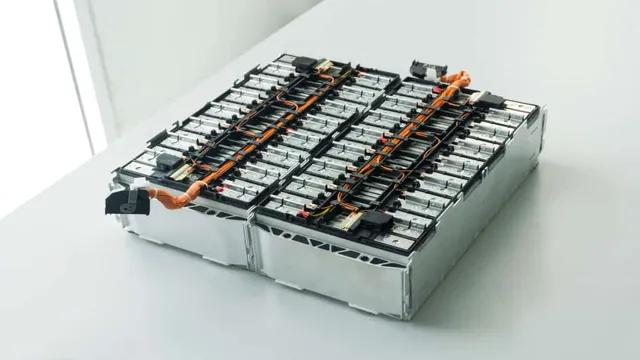
Vehicle Model
When it comes to determining the replacement cost of a vehicle, there are several factors that come into play. One of the most significant factors is the vehicle model. Different models have distinct features and specifications that can affect the overall cost of replacement.
For instance, luxury vehicles tend to have higher replacement costs due to their high-end features and materials. In contrast, smaller cars with fewer features may have a lower replacement cost. Additionally, the age of the vehicle and its mileage can also impact the replacement cost.
Older cars with high mileage may require more extensive repairs or part replacements, which can increase the overall cost of replacement. Overall, it’s essential to consider the various factors that contribute to the replacement cost of a vehicle to ensure you have adequate coverage in case of an accident or theft.
Battery Type
When it comes to replacing batteries, the cost can vary depending on several factors. One of the most significant factors affecting the replacement cost is the type of battery. Different types of batteries require different materials and manufacturing processes, which can influence the price.
For example, lithium-ion batteries are more expensive than lead-acid batteries. However, they usually have a longer lifespan and offer better performance. Additionally, the size and capacity of the battery can also impact the cost.
Larger batteries with higher capacities tend to be more expensive than smaller ones. Therefore, it is essential to consider these factors when looking to replace a battery. By selecting a battery type that meets your needs, you can balance the replacement cost with the overall value and performance of your device.
Average Battery Replacement Costs
One of the most common concerns for individuals considering purchasing an electric car is the cost of replacing the battery. While the upfront cost of an electric car may be higher than a traditional gas-powered car, the cost savings over time can be significant. The average cost of replacing an electric car battery can vary depending on the make and model of the vehicle, but on average it can range from $3,000 to $8,000.
However, it is important to note that the lifespan of electric car batteries is typically longer than traditional car batteries and can last for up to a decade or more. Additionally, some car manufacturers offer warranties on their electric car batteries, providing additional peace of mind for the vehicle owner. Overall, while the cost of replacing an electric car battery may seem daunting, the long-term savings and environmental benefits of driving an electric car may outweigh the potential cost.
So, if you’re thinking of purchasing an electric car, don’t let the fear of battery replacement costs hold you back!
Tesla Model S
If you are wondering about the average battery replacement costs for a Tesla Model S, it is important to understand a few key factors. The Model S has two battery options: a 75 kWh and a 100 kWh. The battery life for these options is expected to last around 500,000 miles or more, making them incredibly durable.
However, at some point, you may need to replace the battery if it starts to degrade or lose its capacity. The average cost for a Tesla Model S battery replacement can range anywhere from $5,000 to $20,000 depending on the age of the vehicle and the type of battery. It’s important to note that battery replacement costs are not covered under Tesla’s warranty, so you will need to be prepared to pay for this expense out of pocket.
Additionally, it’s important to go to a certified Tesla service center to ensure that your vehicle is serviced properly and to prevent any potential damage that could occur during the battery replacement process. Overall, while the cost of battery replacement may seem expensive, it is important to weigh the long-term benefits of a new battery and the overall value of your Tesla Model S.
Nissan Leaf
When it comes to electric cars, the Nissan Leaf has become a popular choice for environmentally conscious drivers. One cost consideration for prospective owners is the average battery replacement cost. A new battery for the Nissan Leaf can cost between $3,500 and $7,500, depending on the year and model of the vehicle.
However, it is important to note that battery replacement is not typically necessary for the first 8-10 years of ownership. Additionally, many Nissan Leaf owners choose to purchase a used battery or have their original battery refurbished, which can significantly lower the cost. Overall, while the potential cost of battery replacement is a factor to consider, it should not deter drivers from considering the Nissan Leaf as a reliable and cost-effective option for sustainable transportation.
Chevrolet Bolt
When it comes to the Chevrolet Bolt, one of the biggest concerns for owners is the potential cost of replacing the battery. Luckily, the average battery replacement costs for the Bolt are relatively low compared to other electric vehicles on the market. While the exact cost will depend on factors like the age of the battery and your location, the battery replacement cost for a Bolt should be around $5,500 to $6,000.
This may sound like a lot, but it’s actually quite reasonable when you consider the size and power of the Bolt’s battery. Plus, with proper maintenance and care, your Bolt’s battery should last for at least 8 years or 100,000 miles before needing to be replaced. So, if you’re concerned about battery costs, rest assured that the Bolt is actually a great choice for affordability and reliability.
DIY Vs. Professional Replacement
One of the most important decisions you’ll make when needing a replacement battery for your electric car is whether to go the DIY route or opt for a professional replacement. While the cost of a replacement battery can be a major concern, it’s important to consider all factors before making a decision. DIY options may seem cheaper at first, but you’ll need to have the proper tools and expertise to ensure the safe and effective installation of the battery.
Additionally, being responsible for the installation yourself may void any warranties or guarantees on the battery. On the other hand, a professional replacement may come at a higher cost, but you can have peace of mind knowing that the job will be done correctly and with a warranty to back it up. Ultimately, the decision between DIY and professional replacement will depend on your expertise and budget, but it’s important to prioritize safety and guarantee when it comes to the costly investment of a replacement battery for your electric car.
Pros and Cons of DIY
When it comes to replacing something in your home, such as a broken window, it can be tempting to opt for a DIY approach rather than hiring a professional. However, there are pros and cons to consider. On one hand, DIY can be cost-effective and enjoyable if you have the skills and knowledge needed to do the job correctly.
It can also give you a sense of pride and accomplishment. Additionally, you may be able to complete the project quicker than if you waited for a professional. On the other hand, if you lack the necessary skills, replacing a window yourself could lead to errors that could end up costing you more in the long run.
Uneven installations or improper caulking could lead to drafts, leaks, and even damage to your home. Furthermore, if you’re not confident in your abilities, the project could become stressful and anxiety-inducing. In the end, the decision between DIY and hiring a professional should be based on your individual circumstances.
If you’re confident in your skills and have the necessary tools, DIY could be a viable option. However, if you’re unsure or the project seems too complex, it’s always best to err on the side of caution and seek professional help. Ultimately, it’s better to invest in a job well done rather than having to deal with the consequences of a botched DIY project.
So, think wisely before you leap and make a choice that’s best for you and your home.
Benefits of Professional Replacement
When it comes to replacing household items, including appliances and fixtures, many people are faced with a tough decision: DIY or professional replacement? While opting to do it yourself may seem like a cost-effective solution, professional replacement offers many benefits that outweigh any initial cost concerns. First and foremost, professionals have the expertise and experience needed to ensure that the replacement is done correctly the first time. This means that you won’t be faced with any additional costs or repairs down the line.
Additionally, professionals have access to high-quality materials and tools that you may not have at your disposal, ensuring that your replacement is of the highest quality. Ultimately, opting for professional replacement offers peace of mind and a well-done job, making it the best choice for homeowners looking to ensure the longevity and quality of their home fixtures. So, whether it’s a broken dishwasher or a leaky faucet, consider the benefits of a professional replacement before embarking on a DIY project.
Battery Maintenance Tips
Cost replacement batteries for electric cars can be a major expense for vehicle owners. Thankfully, proper battery maintenance can help extend the life of your battery and save you money in the long run. The first step in maintenance is to regularly check the battery’s state of charge.
This can be done through the vehicle’s dashboard or with a battery monitoring system. It’s important not to let the battery drop below 20% charge, as this can cause irreversible damage. Additionally, avoid extreme temperatures and keep the battery cool when parked for long periods of time.
Another tip is to avoid rapid charging, which can generate excess heat and wear down the battery faster. Finally, make sure you are using the correct charging equipment for your specific vehicle model. By following these battery maintenance tips, you can effectively extend the life of your battery and avoid the hefty cost of replacement.
Conclusion
In summary, the cost of replacing the battery in an electric car may seem daunting, but it’s important to remember that it’s a long-term investment in both the environment and your wallet. Plus, with advancements in technology and increased demand, the price of replacement batteries is expected to continue to drop. As the saying goes, sometimes you have to spend money to save money – and in the case of electric car batteries, the cost is worth the recharge.
“
FAQs
What is the average cost of replacing the battery in an electric car?
The cost of replacing the battery in an electric car varies depending on the make and model, but it can range from $3,000 to $10,000.
How often does the battery in an electric car need to be replaced?
The lifespan of the battery in an electric car can vary, but it’s typically between 5-10 years. Once the battery reaches the end of its lifespan, it will need to be replaced.
Are there any maintenance tips to help prolong the life of an electric car battery?
Yes, to help prolong the life of an electric car battery, it’s recommended to keep the battery charged between 20-80%, avoid exposing the car to extreme temperatures, and avoid frequent fast charging. Regularly servicing the car can also help identify any issues that could affect the battery.
Is the cost of replacing the battery in an electric car covered under warranty?
Many electric car manufacturers offer warranties for the battery, which may cover the cost of replacing it if it fails before a certain point. However, the length and terms of the warranty vary between manufacturers, so it’s important to check the details of any warranty before purchasing an electric car.
